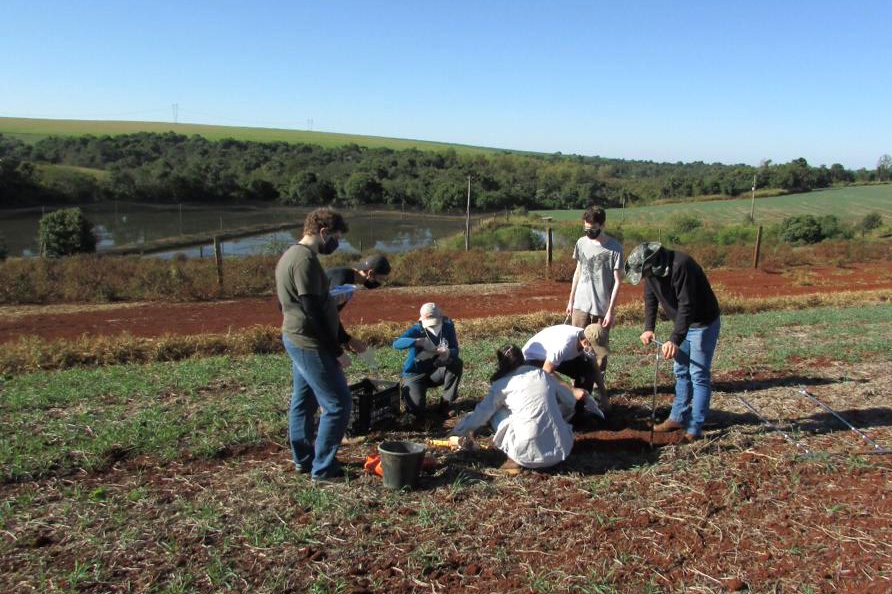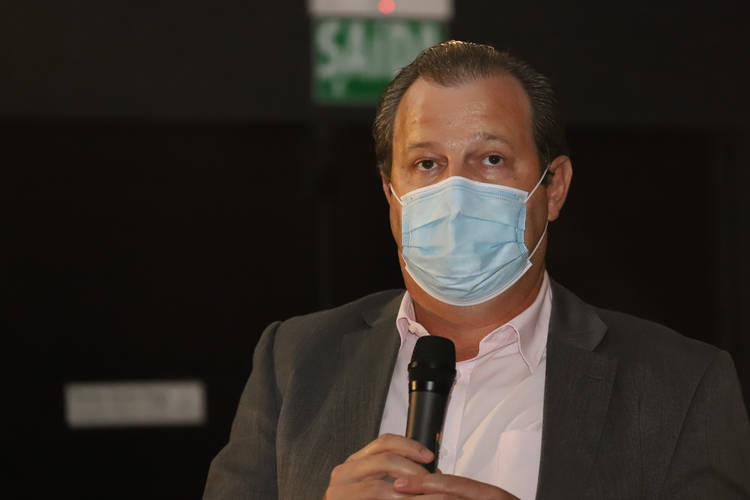From discovering a new method for detecting the spread of coronaviruses to a patent that allows pariparoba (a native plant) to be used in the treatment of tuberculosis, Parana has been the protagonist when the subject is scientific research. There are seven state higher education institutions that generate benefits for agriculture, health, education, technology and energy, among countless other areas.
The state universities of Londrina (UEL), Maringa (UEM), Ponta Grossa (UEPG), Midwestern Paraná (Unicentro), Northern Paraná (Uenp), Western Paraná (Unioeste) and the State University of Paraná (Unespar) place the state among those that contribute the most to the country’s scientific output. In addition to being prominent in Latin America.
Two of them – UEM and UEL – are also ranked among the higher education institutions that produce the most research in the world, according to a ranking prepared by the Center for Science and Technology Studies at Leiden University in the Netherlands. Individual awards include nominations for Jabuti and national and international publications.
In Paraná, for example, contributions go through an academic office to projects involving small municipalities; direct technology transfer to agribusiness; Experiments of thirst in intensive care unit patients. The behavior of bees helping women; and new projects in this field.
Even with all the restrictions imposed by the Covid-19 pandemic, universities have not stopped production and research. On the contrary, the disease has brought new challenges and solutions. One of them was the restructuring of university hospitals for regional specialized care, which increased their structures, as well as the launch of Telemedicine platformA and support scholarship holders in health services.
In Parana, the state government values and encourages innovation and scientific production – there are many actions, projects and resource allocation for this. For the seven public universities alone, including university hospitals, the projected budget for 2021 for scientific research exceeds R$2 billion.
The Paraná Fund, managed by the General Supervisory Authority for Science, Technology and Higher Education (Seti), has allocated another R$25.6 million for initiatives in priority areas.
There are also resources available on other fronts: R$1.6 million for technical residency programs; R$9.8 million for measures to improve higher education; In addition to funds for technology centers, parks, and innovation systems.
Another R$14.4 million is being invested to make available three thousand scholarships through three public calls for scientific initiation launched by the state government. In this interview, Director of Science, Technology and Higher Education, Nelson Aldo Bona, explains the challenges in the region and the state’s actions in favor of scientific production and innovation in Paraná.
What is the importance of conducting scientific research in universities?
In Brazil, more than 92% of all science produced takes place in public universities, and in this sense we would not have the position that we have today in the international classification of knowledge production, where the country occupies thirteenth place, otherwise. For work developed in universities, especially in public universities.
Parana has seven public universities and all of them conduct research in different fields. What distinguishes an institution from its scientific knowledge?
The university stands out for the knowledge it produces has repercussions in the academic world. This means that when a piece of knowledge is published, it finds readers and inspires other work around the world. There are very precise indicators that measure the number of articles and the importance of knowledge production at that university. All this makes it stand out as a research institution or not. It is important to note that the knowledge produced in the university needs to be related to the solution of local problems, and this also becomes an indicator for assessing the prominence of the institution in terms of knowledge production.
In the end, does this scientific knowledge in the academy generate benefits for society as a whole?
The great challenge given to us by Governor Ratino Jr. was that universities were increasingly linked to the requirements of their coverage area, that is, to make the knowledge they produce, the extension work, fully related to what the community needed, what business or commerce, education, health and other sectors needed. In the specific case of our seven state universities, we can cite many situations in which university production has served the interests of society, particularly in this time of pandemic. There are many actions that have directly benefited the state’s health system, for example.
Does encouraging research that is developed within the university also cooperate with the innovation system sought by the country?
There is no doubt that today research is the main raw material, the main tool and the great tool capable of generating innovation. It is an innovation that can in fact be described as such, when what has been produced in terms of knowledge becomes a tangible benefit in people’s lives. When it becomes productive, it benefits society as a whole. In this sense, the result of innovation is greater the more relevant the research is to the needs of society.
For undergraduates, is scientific research a way not only to search for knowledge but to retain it as well as to learn how to apply it?
For an undergraduate student, a scientific start is a way to make them enjoy their training in higher education much more, with much greater benefits than a student who simply fulfills the obligations of the academic curriculum. When a student enters university, he places great emphasis on the idea of knowledge as something absolute, produced by demigods, and that simple humans should only study and learn. At the university the student faces a different reality, that is, knowledge is not absolute, it is always under construction and accessible to everyone who devote himself to the study of the subject. It opens up to the student the possibility to be the producer, building knowledge with colleagues and faculty, as well as with the global scientific community.
How is the Covid-19 pandemic interfering with research at state universities?
In different ways. The pandemic has led to consideration of relevant, priority and urgent issues related to human health prevention. The first intervention was to highlight the demand for studies on a range of topics related to virus infection. There is also a second, namely the difficulty of sustaining projects and research processes that require a lot of social interaction. It was necessary to reinvent the way of working with the production of knowledge in these cases.
However, I believe that the biggest intervention of Covid-19 in research in Brazil and in the world as a whole has been to highlight the relevant role of science in addressing the great challenges of humanity.

Are state investments also considering this new reality?
We have expanded the resources available to the research movement, and put our state and federal universities at the center of fighting the epidemic throughout 2020. We provide our universities with the infrastructure for a range of service actions to the community, as well as for strength in laboratories for research. We will emerge from the pandemic with our ability to produce increased knowledge and create the conditions for a more solid structure of material and human resources. In general, I would say that the pandemic has structurally interfered with the possibility and definition of topics relevant to the scientific production process.
Speaking of the Parana scenario specifically, what are the challenges to the production of scientific research in the state?
There are many of them and it is difficult to list them, and even more if we think in order of priority. Not only in Paraná, in Brazil as a whole, the biggest challenge in producing scientific research is the lack of resources. It is a lack of funding for this. We are currently seeing a very large increase in the scientific community and a decrease in the resources devoted to scientific production. There is no way to produce knowledge without investment, without material resources, without training people, and without adequate and equipped laboratories. I would say that given the capacity of the scientific community in the country, and not only in Paraná, if the material conditions for conducting the research were better, our results would be more relevant.
The proof of this is that Brazilian researchers around the world are highly regarded and sought after by large international research centers, precisely because we have this capacity for invention, innovation and science in Brazilian DNA.
What is the state government’s role in supporting the promotion of scientific research?
The state government plays an essential role in funding the scientific research done by our universities, not only by state universities, but also by federal and private institutions that conduct research. The role of the state has proven to be more important. Here at Parana, we maintain our investments in scientific research. This year, we have increased the amount of resources allocated to our institutions through public notifications from the Araucária Foundation, through strategic projects contracted directly within the Paraná Fund Management Unit, all with the aim of supporting our researchers’ knowledge production efforts.
There is government investment on several fronts. Are there tools designed to improve these resources?
We are building large collaboration networks, based on an idea led by the Araucária Foundation, to create new innovation research arrangements. These new arrangements bring together researchers on closely related topics within the five priority knowledge areas established by the State Science and Technology Council. This association between priority areas, such as new research arrangements with innovation, makes state investment more effective. Given the scarcity of resources, it is necessary to invest resolutely, striving to reduce as much as possible the allocation of resources that generate relevant results for society as a whole.

“Wannabe internet buff. Future teen idol. Hardcore zombie guru. Gamer. Avid creator. Entrepreneur. Bacon ninja.”

